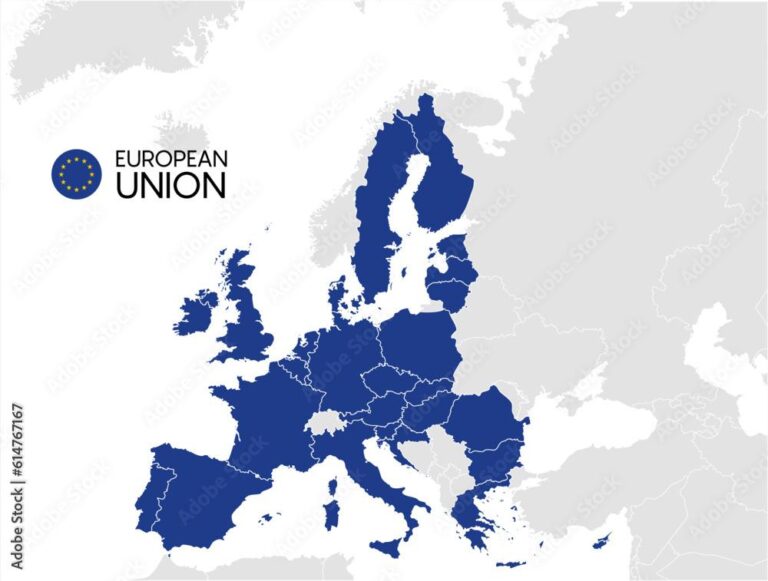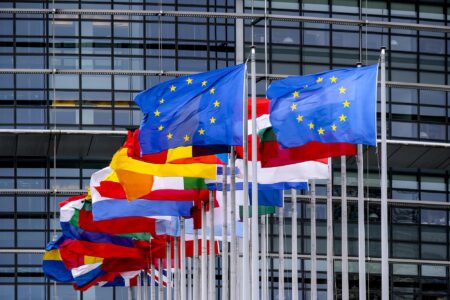Introduction:
In light of the persistent conflict in Ukraine, the European Union is gearing up to introduce a new set of sanctions aimed at Russia. This strategic move seeks to amplify pressure on moscow as hostilities escalate. With millions affected and regional stability at risk, EU officials are gathering to purposeful on measures that could significantly impact vital sectors of the Russian economy while restricting its access to essential resources. This initiative highlights the EU’s unwavering commitment to supporting Ukraine and reinforcing its position against breaches of international law. As diplomatic efforts unfold amidst rising tensions, these sanctions may have far-reaching consequences that extend beyond Europe, potentially reshaping global geopolitical dynamics.
EU Sanctions Targeting Key Sectors of the Russian Economy
The European Union is intensifying its response to the ongoing crisis in Ukraine by focusing on crucial sectors within Russia’s economy. The latest round of sanctions aims specifically at crippling Russia’s energy, defense, and financial industries. These measures are designed to exert pressure by limiting access to critical technologies and resources, thereby hindering Russia’s ability to fund military operations effectively. The anticipated sanctions will likely encompass:
- Export restrictions on advanced technologies that bolster military capabilities and cybersecurity.
- Investment limitations in Russian energy initiatives, particularly those related to oil and gas extraction.
- Asset seizures targeting prominent individuals and entities associated with the Kremlin.
The EU is also working closely with global partners to ensure a cohesive strategy against Russian aggression. This collaboration includes enhancing compliance mechanisms for existing sanctions while increasing oversight regarding potential circumvention efforts. To facilitate effective implementation of these measures, a structured framework has been established:
| Sectored Focus | Type of Sanction Imposed |
|---|---|
| Energy Sector | Bans on exporting essential technologies |
| Financial Sector | A freezing assets policy for major banking institutions |
Impact Analysis: Sanctions’ Effects on Russia’s Economy and European Stability
The ongoing sanctions imposed on Russia since tensions escalated over Ukraine have had significant repercussions for its economy. In 2023 alone, key areas such as finance, energy production, and technology have seen marked declines in performance metrics.The ruble has depreciated considerably;, this depreciation has led directly to inflationary pressures that diminish consumer purchasing power across various demographics. A combination of export bans alongside an exodus of Western businesses has severely curtailed foreign investment opportunities for Russia; consequently pushing it towards choice alliances primarily with nations like China and India—a pivot that hasn’t fully compensated for economic losses thus far.
This situation also bears implications beyond Russian borders; it affects economic stability within European countries as well.The continent faces a complex challenge;, balancing energy dependencies while striving for unity against aggressive actions from moscow poses significant hurdles ahead.With interruptions in gas supplies coupled with fluctuating energy prices forcing nations into reconsideration mode regarding their economic strategies—key impacts include:
- Skyrocketing energy costs:, affecting both consumers’ budgets as well as business operational expenses.
- potential recession threats:, particularly looming over economies heavily reliant upon imported energies.
- Social cohesion strains: as mounting economic pressures lead communities toward unrest or dissatisfaction .
. . . . . . . . . . . . . . . . . . . . . . . . . . . . . . . . . . . . . . . . $ $ $ $ $ $ $ $ $ $ $ $ $ $ $ $ $ $ $ $ - - - - - - - - - - - - - - - - - - - -area Affected immediate Consequence Long-term Outcome Energy Supply Chain Price surges Transition towards renewable alternatives Consumer Sentiment Reduced expenditure Possible recovery post-crisis - >Political Landscape
- >Heightened public dissent
- >Increased nationalist sentiments
Strategies for Enhancing EU Cohesion Amidst Rising Tensions
The European Union finds itself at a pivotal moment given escalating conflicts surrounding Ukraine alongside growing assertiveness from Russia.To maintain solidarity among member states , prioritizing<strong open communication channelsand collaborative decision-making processes over nationalistic tendencies becomes imperative.Key strategies might involve :
- < strong Regular high-level summits : Establishing frameworks facilitating frequent meetings among leaders addressing geopolitical challenges . < strong Enhanced diplomatic missions : Strengthening embassies consulates key regions bolstering international presence influence .< strong Unified dialog strategy : Crafting coherent narratives resonate citizens globally reinforcing mutual solidarity .
Additionally fostering interdependence amongst EU nations can act buffer internal divisions.Member states could explore initiatives such as:
<th Initiative / tr /> <td Trade agreements / tr /> <td Joint security projects / tr /> <td Cultural exchange programs Concluding Insights: Future Implications Ahead!
As the European Union amplifies its efforts toward imposing further restrictions upon Russia due ongoing conflicts stemming from Ukrainian territory ,observers worldwide remain vigilant anticipating outcomes.These forthcoming actions not onyl signify commitment support but emphasize necessity unified stance counteracting aggressions throughout Europe.As negotiations progress potential ramifications both economically geopolitically remain uncertain yet crucial shaping future relations security landscape across continent.The resolve demonstrated by EU holding accountable could pave way decisive actions weeks ahead reaffirming dedication uphold democratic values territorial integrity throughout region!
- Social cohesion strains: as mounting economic pressures lead communities toward unrest or dissatisfaction .




